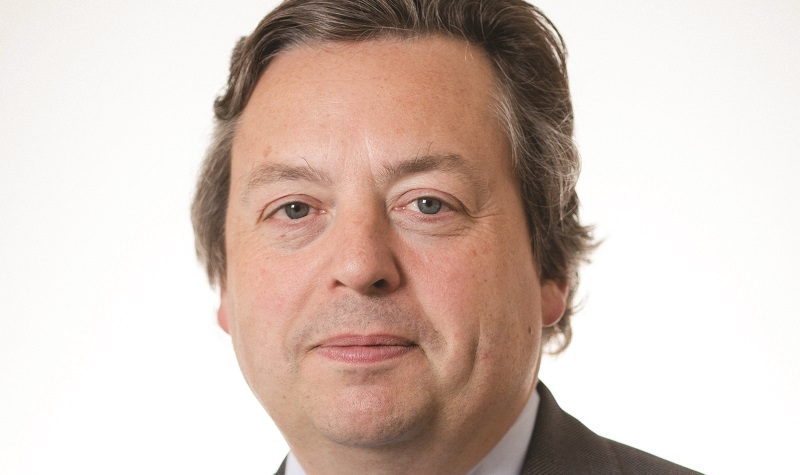Troy Income & Growth has revealed it will slice its dividend for the upcoming financial year as managers Francis Brooke and Hugo Ure eschew traditional high yielding stocks in favour of companies with better growth potential like Hargreaves Lansdown, Integrafin and Fevertree.
The trust’s board confirmed it would be implementing a new and reduced dividend rate for the year to 30 September 2021 with a planned quarterly rate of 0.49p, implying a full year dividend of 1.96p.
The new rate for 2021 represents a 29.4% cut from this year’s annual dividend of 2.78p, which was up 1.1% on 2019.
Chairman David Warnock said the revised dividend rate reflects the “structural impact of the pandemic on the UK equity dividend landscape” and the fact managers Brooke (pictured) and Ure have been rotating the portfolio away from traditional high yielders like banks and oil companies to businesses with better long-term growth prospects.
The trust’s net asset value plunged 9.1% in the year ended 30 September, while its share price slid 11.6%. This left the £255.2m trust trading at a 0.8% discount compared to a 1.1% premium a year ago.
However due to its defensive positioning, it held up better than the FTSE All Share which was down 16.6%.
Currently the trust trades on a 0.5% discount, while the the size weighted average for the UK Equity Income sector is -1.3%, according to data from the Association of Investment Companies.
Troy Income & Growth initiate stakes in Hargreaves Lansdown and Integrafin
Writing in the trust’s annual results managers Brooke and Ure said the volatility during the Covid sell-off had given them a “once in a decade opportunity” to position the portfolio for the future and forced them to take stocks of holdings where “growth has stagnated” and dividends had become unsustainable.
The pair sold out of their positions in Wells Fargo and Lloyds, which have become challenged by ultra-low interest rates and state intervention, and initiated positions in platform firms Hargreaves Lansdown and Integrafin. They also added to their existing holding in AJ Bell.
Weaker demand for oil and pressure to decarbonise also prompted Brooke and Ure to ditch holdings in BP and Shell and redeploy capital into chemicals company Croda and product tester Intertek.
The move away from traditional financials and oil and gas majors is a strategy the managers have also been pursuing with their open-ended Troy Income fund since the arrival of Blake Hutchins from Investec. Hutchins was recently added as a co-manager on Troy Income & Growth.
Following its strategy shift the duo are also focused on boosting their international equities exposure, adding holdings in Paychex and Medtronic in Q1 and snapping up Visa in August. The trust is allowed to hold up to 20% in non-UK stocks.
Brooke and Ure also ditched a handful of stocks with “fading growth prospects” like Vodafone, Rathbones and Sage, replacing them with holdings in Diageo and Fevertree.
“Short-term challenges undoubtedly remain,” the managers said. “However, we think it is reasonable to assume that the companies held in the portfolio are now incrementally better prepared to navigate through further disruption, whether that be from Brexit, Covid-19 or uneven economic growth.”
Dividend cut should come as no surprise
Numis Securities said while the cut “should come as no surprise,” some investors may feel “disappointed” given the trust’s more defensive approach and the asset manager’s track record navigating crises without sacrificing dividends.
Troy Asset Management was one of the few firms to maintain dividend growth in its open-ended fund, Troy Income, which has very similar holdings to the trust, during the global financial crisis, the stockbroker notes.
“However, this reflects the extent of the dividend cuts in the market and the manager’s total return focus seeking to generate long-term, sustainable returns, which has seen the portfolio transition in recent years from high current yielders to companies with more potential for long-term growth.
“We believe that Troy Income & Growth remains attractive to investors and the manager has an impressive track record using a cautious investment approach utilising a core philosophy to protect investors’ capital and paying no attention to relative stock or sector weightings when constructing the portfolio.”










